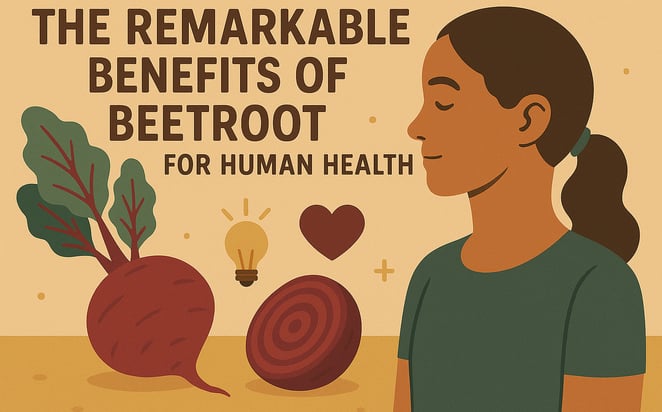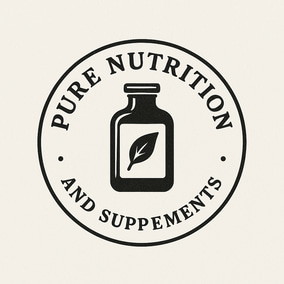The Remarkable Benefits of Beetroot for Human Health
Beetroot, also known as beet, is a vibrant root vegetable celebrated not just for its striking color but also for its impressive array of health benefits. Rich in essential nutrients and bioactive compounds, beetroot can significantly contribute to overall well-being when incorporated into a balanced diet.
4/13/20252 min read


Introduction to Beetroot
Beetroot, also known as beet, is a vibrant root vegetable celebrated not just for its striking color but also for its impressive array of health benefits. Rich in essential nutrients and bioactive compounds, beetroot can significantly contribute to overall well-being when incorporated into a balanced diet.
Nutritional Profile
This root vegetable is a powerhouse of vitamins and minerals. Beetroot is particularly high in folate, manganese, potassium, iron, and vitamin C. Moreover, it contains nitrates, which are compounds that have been linked to various health benefits. Due to this remarkable nutritional profile, beetroot supports numerous bodily functions, making it a valuable addition to one's diet.
Key Benefits of Beetroot
Beetroot consumption is associated with several health benefits. First and foremost, the presence of nitrates can help lower blood pressure levels, making it a heart-friendly food. Studies have shown that dietary nitrates can enhance blood flow and improve overall cardiovascular health.
Furthermore, beetroot is an excellent source of antioxidants, particularly betalains, which are known for their anti-inflammatory properties. Consuming foods rich in antioxidants helps combat oxidative stress and may reduce the risk of chronic diseases, including certain types of cancer.
Another significant benefit of beetroot is its potential to enhance athletic performance. Athletes often use beetroot juice as a natural ergogenic aid, as nitrates can improve exercise efficiency, allowing for greater stamina and endurance. Incorporating beetroot into smoothies or salads can be a practical way for athletes to leverage its benefits.
Additionally, beetroot has been linked to improved cognitive functions. Some studies suggest that the nitrates in beetroot can enhance blood flow to the brain, which may be beneficial for cognitive tasks and overall brain health. This aspect is particularly important as we age, highlighting beetroot's potential role in cognitive preservation.
Moreover, the fiber content of beetroot supports digestive health. Including beetroot in your diet can promote regularity and may assist in managing digestive disorders. The combination of fiber with its natural sugars supports a balanced gut microbiome, contributing to overall gut health.
How to Incorporate Beetroot in Your Diet
Incorporating beetroot into your meals is easier than one may think. Raw beetroot can be grated into salads or blended into smoothies. Roasted beetroot makes for a delicious side dish, adding natural sweetness to meals. Additionally, beetroot juice is available at many stores, providing a concentrated source of its health benefits with a refreshing taste.
In conclusion, beetroot is a versatile and nutritious vegetable that holds an array of health benefits. From supporting heart health and improving athletic performance to enhancing cognitive functions and aiding digestion, beetroot is undoubtedly a superfood worth adding to your grocery list. By embracing this colorful root vegetable, you can enjoy its myriad benefits while indulging in delightful culinary experiences.
Our recommended beetroot supplement: https://amzn.to/3GkBbfS
